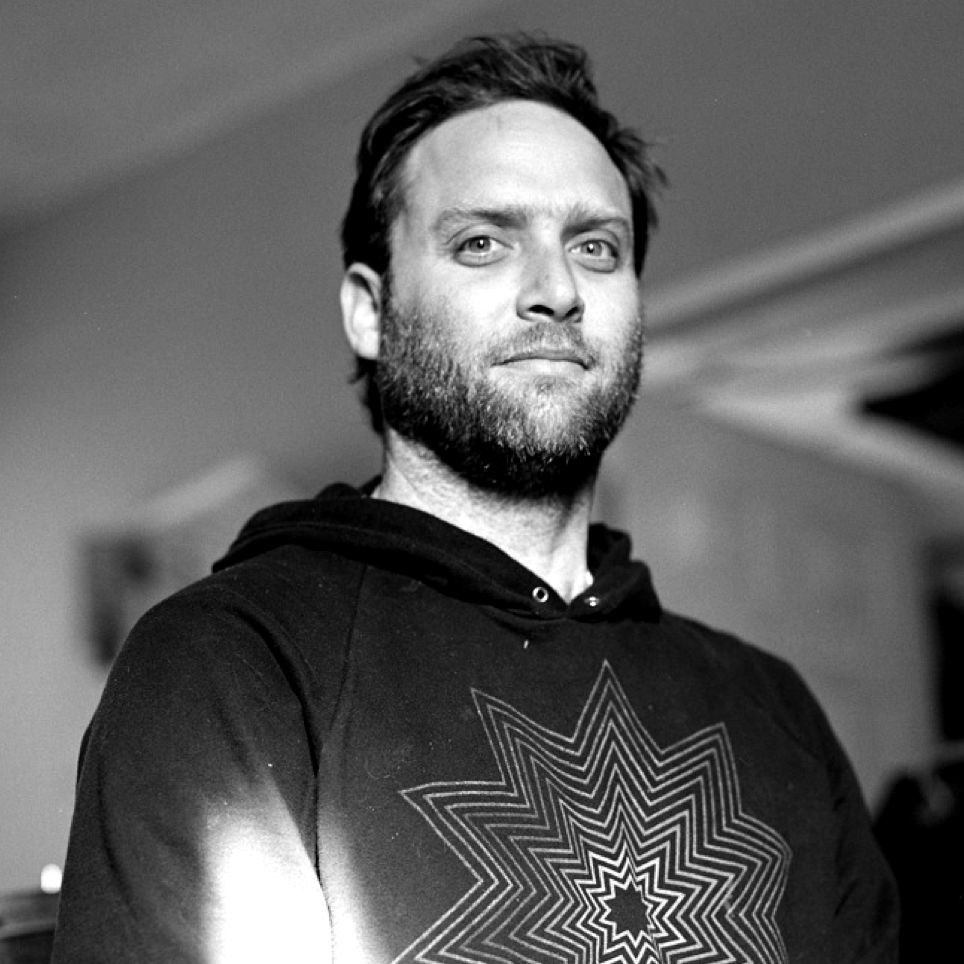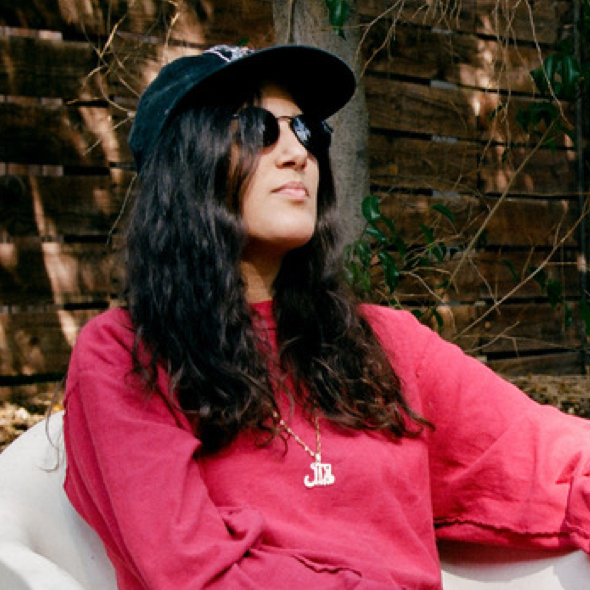Eight outstanding conversations offering insights from deep within the global music ecosystem
#HowWeListen Live: In Conversation is a live event series focused on demystifying music ecosystem topics for music creators and their teams of today. On the last Tuesday of each month, Byta founder Marc Brown interviews a guest from within the music ecosystem about a topic falling into the guest’s area of expertise. Each instalment of #HowWeListen Live: In Conversation is free, live on Zoom, open and accessible to all.
This past year we had eight outstanding conversations that ran the gamut from publishing to PR, and festival curators to playlisting experts, insights from deep within the global music ecosystem. Below are just a few quotes from this year’s events. Jump in and listen to or read more, each of these conversations is a miniature masterclass.

Simon Pursehouse
Global Director of Music Services (Sentric Music)
“Now what’s the difference between performance and mechanical income? Performance income is for every single time your track is broadcast: radio, TV gig, whatever. Mechanical income is, every single time, the track that you’ve written is reproduced. So a CD or vinyl or streaming also counts, even a TV program. So for example, if you get a track on a TV show, you get one mechanical payment, because that’s the commitment of the music to the tape, the reproduction of it. You also get a performance royalty every single time that episode is broadcast. Every time someone streams one of your tracks that generates a mechanical payment as well. A stream generates a macro payment, of your micropayment 80% of that goes to the record label or the digital distributor or whoever owns the masters. The remaining 20% is the money generated for the sunrise of that track: 50% performance and 50% mechanical. Finally, when it comes to synch: never, ever work with a company where you have to pay to submit your music for sync opportunities. To that end, one of the first people who will be queuing up to work with you, once you are ready is probably going to be a lawyer.”

Lara Baker
General Manager, UK & IE (FUGA)
“One of the things that bugs me is the music industry gender pay gap. It’s different in other countries but in the UK any company that employs over 250 people has to publicly declare its gender pay gap figures each year. In the music industry, that means that only major companies with over 250 employees have to comply, so it’s not super representative. What we can see from the stats is that the gender pay gap isn’t closing that much, and a few big companies have wider pay gaps today than they did in the past. We are seeing lots of women getting promoted to leadership positions, but it takes a long time for these actions to filter through into systemic and measurable change when it comes to things like pay. It’s also important to note that most of the music companies are smaller than that and therefore don’t need to report on it, so we don’t know. There are also ethnicity pay gaps that don’t need to be reported on legally at all, so we have no data about that. It goes beyond the actual gap, this needs to be thought of in a much bigger sense. There needs to be things like more family-friendly policies for families and caregivers, and changes in recruitment to remove bias. There also needs to be better training and education for managers and leaders within companies so that they can focus on change and inclusivity.”

Daniel Seligman
Creative Director & Co-founder (POP Montreal) / Artist Manager (Danagement)
“I think music festivals and conferences are amazing opportunities, but you need to take advantage of the opportunity to showcase. So you can’t just show up and play your show, you have to sign up for panels and try to connect with industry people that are in attendance. You can also connect with all the other artists and build a network. Everyone wants the golden ticket, but the reality is that it’s a lot of work and you have to resonate and work on building your fanbase. You have to hustle.
You have to believe in what you’re doing and develop your career in connection with your audience. Whether that’s making records traditionally, starting a Patreon, or going on tour – you have to find out who and where your audience is and how to connect with them. You also need to have a strategy when it comes to showcases – you have to make the effort to understand what’s happening and who the key players are. Most people in the music industry are passionate, so if you’re not then it’ll be hard to get to the hustle. My main piece of advice: Find what you’re passionate about and the hustle will follow.”

Andee Connors
Senior Manager: Creator & Catalog Services (Pandora / Sirius XM)
“Honestly, I think that being a musician or an artist in 2023 is so much more challenging than it was. Every platform functions differently – it’s a lot of stuff to remember! I don’t think it’s that people aren’t informed. It is a full-time job just to learn all of the respective platforms. The accessibility that makes it so appealing to be a music fan makes it that much harder to stand out as an artist.
From an artist’s perspective, there are so many options that it’s hard to keep up with. In terms of consumers, it doesn’t matter how you support artists, just that you are supporting your favourite artists!”

May Mahmoudi
A&R (Big Dada Recordings / Just Isn’t Music Publishing / Ninja Tune)
“I think a small label would be a great move. You might not get a massive advance, but a small label is often the best ecosystem to start growing in. That was kind of my story, I was just a DJ who would play shows. I ended up releasing a mixtape with a really small, well-respected underground label. Through releasing a record with them I put out a critically acclaimed mixtape that was covered by a bunch of media and all that. It was literally because of that first release and releasing it in the way we did that I got the attention that I did! If I had released that project on Ninja Tune, it would have been competing with so many other projects that people were focused on. A small label that has this cult fanbase and only releases a few records per year, people are paying attention to them. Word of mouth is really important in that space. If your name is not out there already, you should go small because you can get lost if you try to go too big too quickly.”

Obinna Agwu
A&R Executive (Horus Music, Nigeria)
“In Nigeria, the younger musicians are more tech-savvy and calculated in their approach to releasing their music these days. They realize that they can gather and gain deeper insights about their fans from the numbers, and the metrics. I notice that a lot of the younger artists think hard about music streaming. They are very open to learning more about and better understanding the technology around streaming. Some have even come to understand how long it’s going to take to move their careers forward, they have the patience and confidence to keep going. The artists who win here are the ones who understand that this is going to be a lifelong journey. They just take it slow and are enjoying the journey. Sure some people might blow up “overnight”, but that’s not a reality for most artists. People need to think hard about who they are and what they want to do with their life and then lean into it and work hard.”

Mike Warner
Author / Founder (Work Hard Playlist Hard)
“This comes up a lot in conversations. People ask me what the most important thing they should do is when they have an upcoming release. For me, and I’m, of course, talking about the playlist side, the most important thing to do is go to your artist pages on Spotify & Amazon and pitch your release. Lots of people get frustrated. They say they’ve done it before but haven’t gotten onto playlists. However, there’s so much more to this submission process than just getting on a playlist on release day.
Spotify has gone in the direction of personalized playlists within its algorithm. When they ask you what the mood, genre and instruments used are when you submit it, all of that information is then permanently attached to that song. Yes – it’s being pitched for potential consideration but it also allows it to be delivered to specific people. By filling out this form you’re making sure that your music is going to reach the right listener. Also with Spotify, by submitting music at least 7 days before release day, it’ll go into the release radar playlist. This makes it directly available to everyone who follows you or the artist. That’s a win in and of itself.
For Amazon, one of their benefits is that they’ll send out a push notification to people who have enabled notifications. So just by filling out those two forms you’ll potentially reach people in various listening modes. The other thing I really want to add with Spotify is that they don’t playlist most people. Only 5 of the 28 songs my band submitted ever made it onto other playlists. Our biggest driver of streams on Spotify has always been Discover Weekly. A lot of the songs that we’ve submitted have found their way into this algorithmic playlist just by filling out the form with that information.”

Jason Grishkoff
Founder (SubmitHub)
“Artists/musicians have to think about that early on and also on which platforms they want to interact with their fans. For example, if you’re a folk artist or singer-songwriter, your number one goal might be to perform live. But if you make lo-fi beats in your bedroom, odds are you never want to play live and will make your money in streaming revenue.
If you can, it’s important to focus your expectations on the right place from the get-go. You also have to understand that sometimes you won’t make money. It’s an extremely competitive space. As an artist, it is also important to think about what other rewards are important to you when it comes to your music. If you can identify where you want your listeners to be, how you want to interact with them and how they want to perceive you… that informs what kind of marketing you want to do and if digital marketing will even be a part of your roadmap.”




